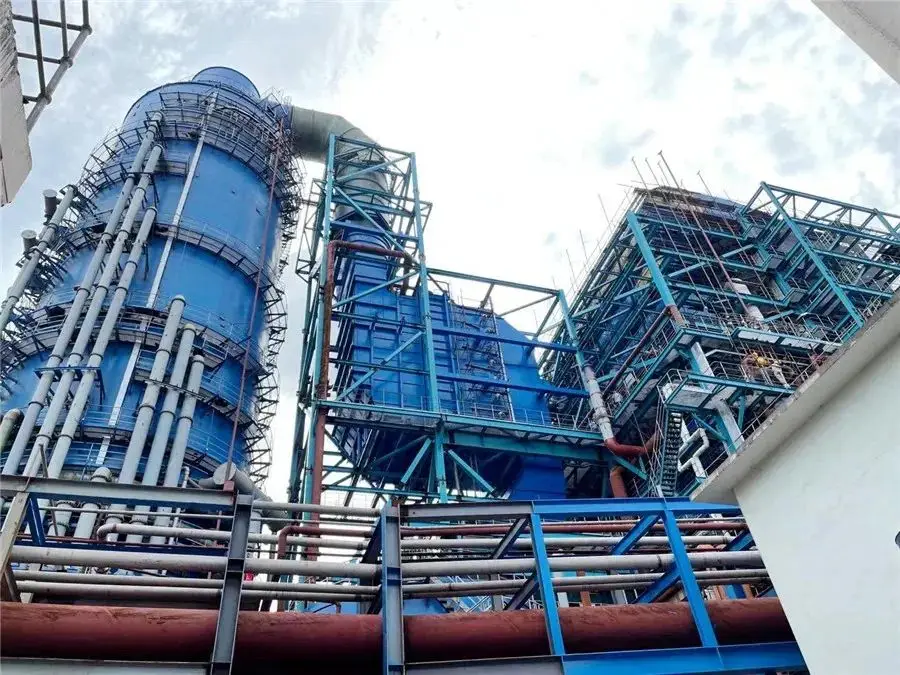
Nov . 14, 2024 06:14 Back to list
hot water boiler furnace system
Understanding Hot Water Boiler Furnace Systems
Hot water boiler furnace systems, often referred to simply as boiler systems, play a crucial role in residential and commercial heating applications. These systems utilize water heated to a specific temperature, distributed through pipes to radiators, underfloor heating systems, or heating coils, ensuring comfortable indoor climates. Understanding how these systems work, their components, and maintenance requirements can aid in their efficient operation and longevity.
How Hot Water Boiler Systems Work
At the core of a hot water boiler furnace system is the boiler itself, where water is heated using various energy sources, such as natural gas, oil, electricity, or renewable energy sources like solar. The heating process usually involves the combustion of fuel, which generates heat that is transferred to the water circulating within the boiler.
Once the water reaches the desired temperature, it is pumped through a network of pipes leading to different areas of a building. As the hot water circulates through radiators or heating coils, it transfers its heat to the surrounding air, raising the temperature in living spaces. After the water loses its heat, it returns to the boiler to be reheated, creating a continuous cycle.
Components of a Hot Water Boiler System
A hot water boiler system consists of several key components
1. Boiler The heart of the system where water is heated. Different types of boilers include fire-tube, water-tube, and condensing boilers, each with unique efficiencies and applications.
2. Pump Essential for circulating hot water throughout the system. The pump maintains a constant flow rate, ensuring that all areas receive adequate heating.
3. Expansion Tank This is a safety device that accommodates the expansion of water as it is heated. It prevents excessive pressure build-up within the system.
4. Pipes and Valves These transport hot water to radiators and back to the boiler. Valves control the flow and pressure of water within the system.
hot water boiler furnace system

5. Radiators/Heat Exchangers These components disperse heat into the environment. Radiators can be traditional metal units or modern panel designs, depending on aesthetic and efficiency preferences.
6. Thermostat A control device that regulates the temperature by communicating with the boiler to either activate or deactivate heating based on the desired temperature settings.
Benefits of Hot Water Boiler Systems
Hot water boiler systems offer several advantages over other heating methods. One of the most significant benefits is their efficiency. When maintained properly, these systems can achieve high levels of efficiency, translating into lower energy bills and a smaller carbon footprint.
Moreover, hot water systems provide consistent heat, ensuring that spaces are evenly warmed without cold spots. They operate quietly and can often be used for multiple applications, including domestic hot water production, which further enhances their versatility.
Maintenance and Care
Ensuring the longevity and efficiency of a hot water boiler system involves regular maintenance. Homeowners and facility managers should routinely check and flush the system to remove any sediment buildup, which can hinder performance.
Additionally, checking the safety valves, ensuring proper pressure levels, and inspecting for leaks are all important maintenance tasks. It is often recommended to schedule professional inspections at least once a year to address any potential issues before they escalate.
Conclusion
In summary, hot water boiler furnace systems are a reliable and efficient method of heating spaces in both residential and commercial settings. Understanding their components and how they operate can help users make informed decisions regarding installation, maintenance, and repair. By prioritizing regular upkeep, these systems can provide comfortable warmth for many years to come while remaining energy-efficient and environmentally friendly. With advancements in technology and sustainable practices, the future of hot water boiler systems appears bright, continuing to evolve toward greater efficiency and reduced ecological impact.
-
Oil Fired Hot Water Boilers Sale - High Efficiency & Affordable
NewsJul.31,2025
-
High-Efficiency Commercial Oil Fired Steam Boiler for Industry
NewsJul.30,2025
-
High-Efficiency Biomass Fired Thermal Oil Boiler Solutions
NewsJul.30,2025
-
High Efficiency Gas Fired Thermal Oil Boiler for Industrial Heating
NewsJul.29,2025
-
High-Efficiency Gas Fired Hot Water Boiler for Sale – Reliable & Affordable
NewsJul.29,2025
-
High Efficiency Biomass Fired Hot Water Boiler for Industrial and Commercial Use
NewsJul.29,2025
Related PRODUCTS






















